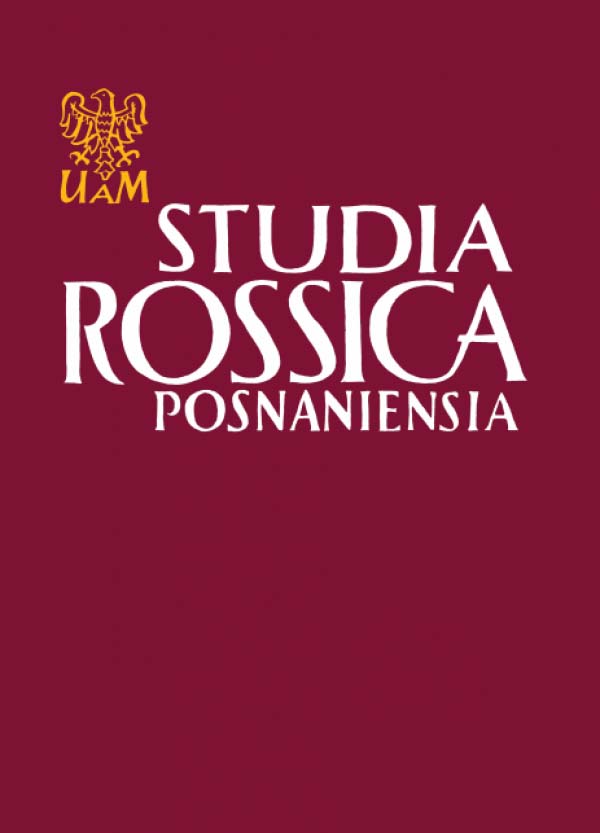LEONID ANDREJEW W POLSCE MIĘDZYWOJENNEJ
LEONID ANDREIEV IN POLAND BETWEEN THE TWO WORLD WARS
Author(s): Franciszek SielickiSubject(s): Language and Literature Studies, Studies of Literature, Philology
Published by: Uniwersytet Adama Mickiewicza
Summary/Abstract: The article presents the reception of Andreiev’s works in Poland in the years 1918 - 1939 with references to the beginnings of Polish interests in this writer which date backto 1902. Twenty three of his works, and a number of translations in periodicals, were published in Polish before the first world war. During the period between the wars there was a marked fall in the popularity of the author of 'The Red Laugh', only three of his works were published, 'The Devil Diary (1922), 'The Dark' (1923), and 'The Seven that were Hanged' (1927). Naturally the reader had in this period access to prewar translations numerous in libraries and bookshops. For example, Andreiev’s 'His Excellency the Governor', published in 1907, was one of the most read books in the libraries of the Railwaymen’s Trade Union in1926. On the other hand, the interest in Andreiev as a dramatist went up in this period incomparison with that in the previous period. He had fifteen first nights in eleven towns. His play 'We Who Gets Slapped' achieved considerable popularity on the Polish stage despite the press reviews which were not always good. Nevertheless, after the triumphs in the early twenties, the next decade brought a fall in the popularity of A ndreiev’s plays as the fashion for expressionism in the theatre went out. A process of a certain disillusion ment with the author of 'Reflections' can also be observed in the literary criticism of that time. The main reason was a fall in the favourable attitude towards the poetics of symbolism and expressionism characteristic for his works. His pessimistic, fatalistic vision of the world did not find recognition either. The latter views, however, were not free from simplifications; they were mostly expressed by conservative critics. The article quotes opinions of eminent Polish writers and literary critics (Stefan Żeromski, Władysław Broniewski, Karol Irzykowski, Teodor Parnicki and others), who recognized positive values in Andreiev’s writings and placed him among the great Russian writers. The above material proves that Andreiev played an important role in Polish Russian literary relations.
Journal: Studia Rossica Posnaniensia
- Issue Year: 1/1970
- Issue No: 1
- Page Range: 93-110
- Page Count: 18
- Language: Polish

